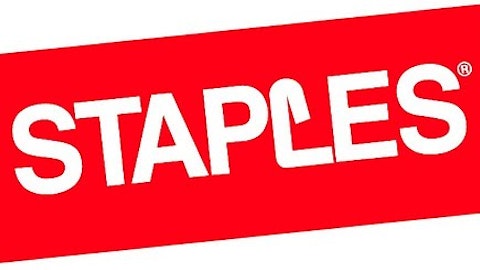Join the Fool for a conversation with Harvey Kanter, who took over as CEO of online jewelry retailer Blue Nile Inc (NASDAQ:NILE) in March 2012. Harvey came to Blue Nile from Moosejaw Mountaineering, having previous worked at other retailers including Backcountry Travel, Michael’s, and Eddie Bauer. Based in Seattle, Blue Nile Inc (NASDAQ:NILE) specializes in engagement rings, and prides itself on educating first-time buyers about diamond quality.
Harvey discusses the realities of being an online retailer, including projections for the growth of online commerce — especially mobile — and the prospect of an online sales tax.
Austin Smith: Obviously, you guys are very online dependent. Right now, depending on how you calculate it, online purchases are only about 10%-15% of bricks-and-mortar purchases, domestically, at least. I’m wondering if you have any sort of thoughts on the trajectory of online purchases, and if there is a point on the near horizon where they eclipse bricks-and-mortar purchases.
Harvey Kanter: Broadly speaking, we believe that customers’ proliferation and movement to digital-based space, to practice commerce or to buy things, is going to continue to accelerate.
Our category is a place where what they’re buying is very understandable, and we’re providing a level of education, counsel, and guidance that they can truly appreciate what they’re buying. There’s a lot of mystery that’s taken out by our website.
The expectation is that the consumer will recognize that there are categories like ours, that they can buy online, and accelerate overall. They’re not thinking, “I’m going to accelerate my purchases,” but they’re going to continue to shift to the online environment.
Mobile only accelerates even farther. We’ve talked about mobile openly, as 30% of the customer traffic came to us from a mobile device in the fall. It’s accelerated to 40% in Q1 and we’re expecting it to be 50% by the end of the year.
When you add all of that up we expect, whether the market goes to double or triple what it is today — to your point, let’s say it’s 10% — 20 or 30% is very reasonable.
There will always be a place for brick-and-mortar stores. We think that that experience is important, but the movement to the Internet environment we think will continue to accelerate and become more meaningful.
Austin: Obviously, there’s a big push for online sales tax. Amazon.com, Inc. (NASDAQ:AMZN) seems to support the measure, and they are the world’s largest online retailer. I’m wondering how something like that would impact your business, should it pass or fail?
Kanter: The Marketplace Fairness Act, it’s hard to know what will transpire. There’s a lot of conversation in the government today about whether or not that should pass. It’s made it through certain hurdles, but it has a long way to go.
We’ll manage appropriately through that. We continue to believe, and know, that our model is so much more efficient than traditional brick-and-mortar stores that the overhead they’re burdened with — the staff and the brick-and mortar-itself — is something that we’ll never have, so we continue to believe we’ll bring great efficiency to the market and ultimately give that consumer value regardless of what happens with the sales tax initiatives that they’re currently lobbying for.
Austin: Now, looking forward, what would you say is the single biggest growth driver for Blue Nile Inc (NASDAQ:NILE) in the future? Is it international? Is it non-engagement? Is it some combination?
Kanter: It’s really taking our core business and growing both share of the market as well as extending the Blue Nile Inc (NASDAQ:NILE) awareness and the share of market worldwide. That is, and has been, our core business and will continue to be.
The article E-Commerce and Mobile: Nowhere to Go but Up originally appeared on Fool.com and is written by Austin Smith.
Austin Smith has no position in any stocks mentioned. The Motley Fool recommends Amazon.com and Blue Nile. The Motley Fool owns shares of Amazon.com. Try any of our Foolish newsletter services free for 30 days. We Fools may not all hold the same opinions, but we all believe that considering a diverse range of insights makes us better investors. The Motley Fool has a disclosure policy.
Copyright © 1995 – 2013 The Motley Fool, LLC. All rights reserved. The Motley Fool has a disclosure policy.




